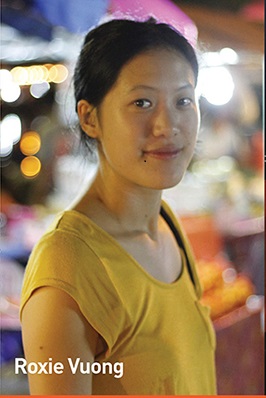Act Now
Act Now explores the way actors from diverse backgrounds are excluded or stereotyped in the arts sector. It also looks to subvert the status quo by showing the range and depth these actors possess when they get ‘carte blanche’ and we see them audition for whatever role they would like to play.
First off, a series of actors will reprise a role or an audition monologue that they found played into cultural stereotype. We then hear them talk about their aspirations, the reasons why they feel compelled to act and the kind of stories they would love to be a part of. Finally we see them act out a monologue, a scene from a movie or perhaps a piece that they wrote themselves that they’re passionate about.
The first and last sequence is filmed like an audition tape, either direct to camera or just off camera. The part in the middle where they talk about their goals and aspirations is filmed a little more like a ‘day in the life’ so we may follow them as they attend rehearsals, hanging out with their family or doing whatever represents them as artists.
 Diverse Screens filmmaker Roxie Vuong
Diverse Screens filmmaker Roxie Vuong
Fairfield filmmaker Roxie Vuong has taken a fascinating approach to uncovering stereotypes in the arts sector in her documentary for DARTS’ Diverse Screens project. She told us a little bit about her experience on the project.
What drew you to the project?
This project was a good opportunity to hear from young female actors who have pro-actively created roles and projects for themselves. They’ve challenged the status quo by telling stories not often seen or heard in our cultural landscape.
What ideas did you explore in your film?
The women I interviewed were all very strong and inspiring in the ways they’ve overcome personal struggles and been able to express it in fun or even entertaining ways on stage or in their stories.
Can you share anything about your personal experience or your opinion about barriers to inclusion in the Australian creative sector?
I think the barriers to inclusion in the Australian creative sector can appear invisible because most of it is internalised. From a young age we accept that people who look like us don’t belong on screen, it just wasn’t a part of our everyday life. And not having grown up with artists or been encouraged in the arts mean most of us just don’t think it’s possible.
Luckily I met a lot of great role models as a teenager, both as a drama kid rehearsing at the local PYT or when I was part of a local filmmaking collective. This made my choice a little easier when choosing a career in the arts.
As an emerging filmmaker it’s still a struggle to feel legitimate in my chosen field when everyone around me is a teacher, lawyer or some other respectable profession. However like the actors I interviewed it’s all about creating your own path and projects and telling your story.
